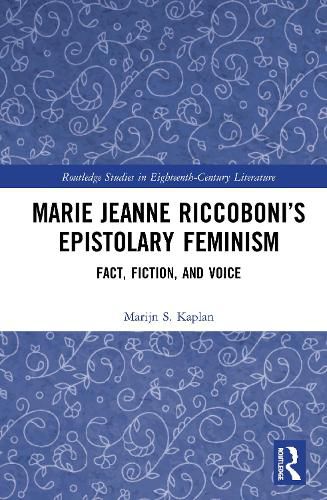Marie Jeanne Riccoboni’s Epistolary Feminism: Fact, Fiction, and Voice argues that Riccoboni is among the most significant women writers of the French Enlightenment due to her epistolary feminism . Locating its source in her first novel Lettres de Mistriss Fanni Butlerd (1757), between fact and fiction, public and private, Marijn S. Kaplan provides new evidence supporting both the novel’s autobiography theory and de Maillebois hypothesis. Kaplan then traces how Riccoboni progressively develops a proto-feminist poetics of voice in her epistolary fiction, empowering women to resist patriarchal efforts to silence and appropriate them, which culminates in her final novel Lettres de Milord Rivers (1777). In nineteen relatively unknown letters (included, with translations) written over three decades to her publisher Humblot, several editors, Diderot, Laclos, Philip Thicknesse etc., Riccoboni is shown similarly to defend her oeuvre, her reputation, and her authority as a woman (writer), refusing to be manipulated and silenced by men.





